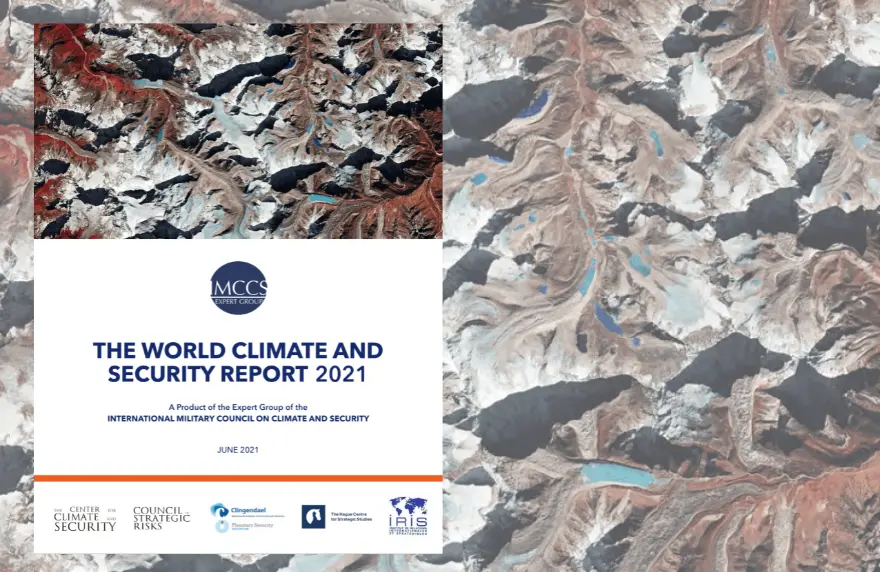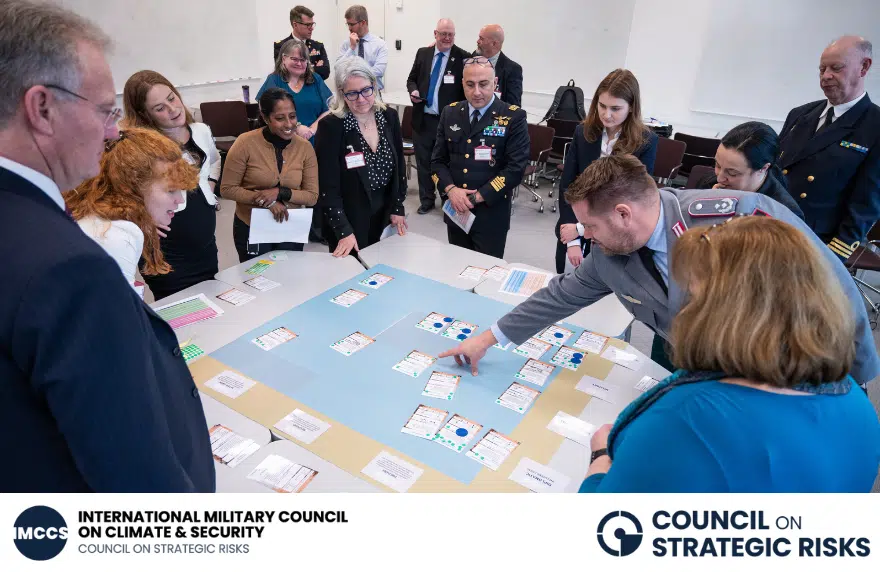Research
The NATO Climate Change and Security Centre of Excellence (CCASCOE) have published their inaugural publication entitled “Advancing Climate Security Together“. HCSS is proud to have provided a contribution by senior strategic analyst Laura Birkman.
This special edition highlights the CCASCOE mission as an international hub for climate security and represents the vision at the heart of this centre. It features insights from 12 Sponsoring Nations, as well as from organizations active in the climate change and security realm. It also showcases collaboration across NATO Centres of Excellence and includes contributions from leading experts in the domain.
The purpose of this publication is to celebrate the establishment of the NATO Climate Change and Security Centre of Excellence, highlighting its mission to advance understanding and action on climate-related security challenges.
Read the full publication here: https://ccascoe.org/book/
HCSS approaches and initiatives in climate security
HCSS is a leading think tank on climate security issues based in the Netherlands. As one of the initial consortium members of the Planetary Security Initiative (PSI) in 2015, co-founder of the Water, Peace and Security (WPS) partnership in 2018, and co-founder of the International Military Council on Climate and Security (IMCCS) in 2019, HCSS has engaged on the climate and security nexus with a wide variety of actors for nearly a decade. Partners and clients include national governments and agencies, international agencies, think tanks and knowledge institutes and NGOs/Foundations.
HCSS Climate and Security Programme
In 2020, HCSS launched a dedicated Climate and Security Programme (CASP). Its threefold mission is to: (1) develop and operationalise a realist framework and approach to climate action; (2) raise awareness and understanding about the nexus between climate- and resource-related risk, instability and conflict; (3) provide data-driven assessments and early warning support to policy makers, program officers, and practitioners. The CASP offers a comprehensive framework that integrates early warning systems, adaptation strategies, mitigation efforts, and decision-making support to address climate security challenges at the strategic, operational, and tactical level. We have a data lab and media facility that supports the development and publication of all our materials into different formats (E.g. dashboards, monitors, videos, podcasts) so that they can be digested by a broad audience, including the general public. Typical outputs include: in-depth research reports; policy briefs; case study analyses, risk and impact assessments; serious gaming and training programmes; data collection systems; AI-based and advanced statistical data analytics; policy dashboards; and predictive, causal and forecasting models.
Thematic areas of research cover a broad spectrum of issues, including, but not limited to: the geopolitics of climate change and the energy transition, climate change and defence, military innovation and technology trends, climate- and water-conflict dynamics, the water-food-energy nexus, natural resource management, climate migration and displacement, critical minerals supply chains.
Examples of Existing and Future Initiatives
HCSS is engaging with a diverse range of stakeholders on the topic of climate security, bringing together experts from the diplomacy, defence, development, and disaster-relief sectors. HCSS is currently working on a number of global initiatives including: the International Military Council on Climate and Security; the Water, Peace and Security (WPS) Partnership; and the IFRC Global Water and Peace Programme. We are also active at the regional and national levels. For WPS, we lead the partnership work in the MENA region and support activities of our partners active in the Sahel en East Africa. In addition, we are supporting the Institute for Security Governance (US DoD) with the implementation of a multi-year climate security training programme for defence and military personnel in different regions. At sub-national level, we are engaged in a multi-year programme with the National Red Cross and Red Crescent Societies operating in the MENA region. Aim is to train and develop the capacities of their teams and help them integrate relevant knowledge and tools into their operations. The plan is to expand these activities to other climate-vulnerable regions where the red cross operates, based on a recently agreed 5-year MoU with the IFRC.






